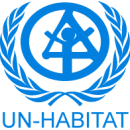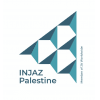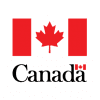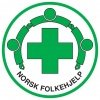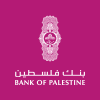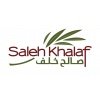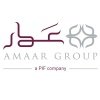Enhancing the Comfort Dimension in Public Spaces in Palesti...
1. Introduction:
The "HAYA" Programme "Eliminating Violence Against Women in the West Bank and Gaza Strip" is a fiveyear
joint programme funded by the Government of Canada with an overall programme objective of
building just and secure communities for women and girls in the West Bank and Gaza Strip. This will be
achieved through progress against three main outcomes focusing on:
(1) Decreased harmful practices and attitudes that perpetuate and validate violence against women and
girls within targeted households and communities;
(2) Increased access by women and girls of gender- responsive EVAW services (economic, medical,
psychosocial, security, shelter) free of discrimination;
(3) Strengthened institutional capacity to develop and implement legal and policy frameworks that
promote and protect women's and girls' rights with regards to VAW. Under outcome (1), there is a
special focus on building an enabling policy environment to combat violence against women and
increase the knowledge and capacity to undertake comprehensive local interventions for prevention and
response on EVAW by local authorities and municipalities.
2. Background:
“Public spaces are key element of individual and social well-being, the places of a community’s collective
life, expressions of the diversity of their common, natural and cultural richness and a foundation of their
identity”. Charter of Public Space, Rome, 2013
The United Nations Human Settlements Programme, UN-Habitat, is mandated by the UN General
Assembly to promote socially and environmentally sustainable towns and cities with the goal of providing
adequate shelter for all. UN-Habitat has the mandate to work with public space, to promote local
governments “to use public space for inclusion, economic improvement, culture, and environmental
resilience in cities”, to “facilitate and implement exchange, cooperation and research between partners
working in this field”, “to develop a policy approach on the role that public spaces play in meeting the
challenges of our rapidly urbanizing world, to disseminate that policy and its results widely and to develop
a plan for ensuring its application internationally”. Governing Council Resolution 23/4, April 2011. A key
milestone was the adoption of the SDG 11.7 which states: that by 2030, provide universal access to safe,
inclusive and accessible, green and public spaces, particularly for women and children, older persons and
persons with disabilities. The indicator for the target is requesting local and national governments to
collect the meta-data for the “Average share of the built-up area of cities that is open space for public use
for all, by sex, age and persons with disabilities”.
Over the past few years there has been growing attention to creating safe, inclusive and accessible public
spaces, especially for women and girls. The adoption of SDG 11.7 and the elaboration of the New Urban
Agenda provide significant recognition of the importance of public space to sustainable development and
whilst it is a critical first step, on its own it will have little impact without an appropriate follow up
mechanism. Therefore, there is a need for supporting local and national governments in developing
legislation, policy, norms and practices, which support governments in adopting a holistic and integrated
approach to the planning, design development, creation, protection and management of public spaces
which are safe, inclusive and accessible for women and girls. Despite the importance of public space,
especially for women and girls, it has seldom been given the attention it deserves and, more importantly,
in policy and action especially at the local level. Therefore, the requested Safety Audit Survey is considered
the first step to inquire factual information and asses women’s safety in public spaces in the targeted
cities to inform policy makers at the local and national levels.
In this assignment, UN-Habitat, in collaboration with the Ministry of Local Government and through the
HAYA Joint Programme, aims to enhance the comfort and usability of several targeted public spaces in
West Bank cities. This will be achieved by supplying and installing selected urban furniture elements
designed to encourage prolonged use of these spaces. The initiative focuses on providing seating, waiting
areas, play zones, and waste bins, contributing to a more inviting and functional environment.
3. Objective:
UN-Habitat, in partnership with the Ministry of Local Government and the targeted municipalities of Al-
Bireh, Beitunia, Kafr Aqab, and Al-Yamoun, aims to enhance comfort and encourage prolonged use of
several targeted public spaces. These spaces include parks, neighborhood gardens, natural and
recreational areas, schools, playgrounds, and public transportation hubs. This initiative involves supplying
and installing selected urban furniture elements designed to promote staying in public spaces by providing
seating areas, waiting zones, play areas, and waste bins.
Supplier’s Duties and Scope of Work:
• The supplier must refer to the documents to review all required works under this project.
• Submit samples, in coordination with the supervising engineer at the local authority, for
approval of the colors of wood and metal paints, the materials to be used, and the
installation method on-site.
• The supplier must provide urban furniture according to the required designs, specifications,
and quantities for each site, including paint colors and all general and specific details, and
install them on-site as per the needs of the different locations.
• Print and install an identification plaque displaying the project name and partners' logos on
a piece of urban furniture with the specified dimensions.
• Print and install an identification plaque displaying the project name and partners' logos as
per the specified specifications and dimensions, and affix it to the front of outdoor waiting
stations.
• Ensure high-quality implementation in full compliance with the specifications.
• Conduct all required quality control processes, including technical tests, as directed by the
supervising engineer from UN-Habitat and in coordination with relevant local authorities.
• Apply all required safety measures in accordance with standard practices, and comply with
local regulations and laws.
• Protect the environment by using eco-friendly materials and by separating and
appropriately disposing of waste in officially designated sites (waste management).
• Deliver the required works and materials as described in this document, fully complying with
the specifications of the Bills of Quantities, within the project timeline and with UN-Habitat's
approval.
• The supplier must complete all supply and installation works within 60 calendar days from
the date of the commencement order.
• The contractor bears full responsibility for storing materials at the work site.
• Fully comply with all obligations outlined in the technical assessment before commencing
work.
• Provide a detailed work schedule using the Critical Path Method (CPM) and provide planned
weekly progress percentages to determine the starting point of progress (S-Curve).
• Coordinate with the UN-Habitat Center to ensure effective and appropriate implementation
and supervision.
• Take multiple photos at each site before, during, and after completion, and submit them to
UN-Habitat .
5. Project Duration:
The supplier must complete all works specified in this tender and deliver the final project in accordance
with the agreed-upon specifications within 60 calendar days from the date of issuance of the "Notice to
Proceed Work”.
6. Submission Requirements:
Please refer to the annex of mandatory technical and commercial evaluation criteria.
7. Annexes:
• Annex 1: Technical and Commercial Evaluation Criteria
• Annex 2: Bill of Quantities
• Annex 3: Project Logo Design for Waiting Stations
• Annex 4: Project Logo Design for Various Benches
• Annex 5: Al-Masayef Park Layout Plan
• Annex 6: Distribution Plan for Waiting Stations in Baytonia City
Information
Optional virtual pre-bid conference
Date & time: Tuesday 10th December , at 10:00 am Palestine time
Microsoft Teams Need help?
Meeting ID: 332 563 091 835
Passcode: ee3xG6R3
Join on a video conferencing device
Tenant key: [email protected]
Video ID: 128 445 964 5
For organizers: Meeting options
________________________________________________________________________________
Clarifications
For clarifications regarding this RFQ, you are requested to contact the Procurement Officer, exclusively in writing, via e-mail: Nour Al Masoud [email protected] no later than Wednesday 11th December, Time 4:00 PM Palestine time . No communication, written or verbal, is allowed in connection with this RFQ with any UN staff members other than Procurement Officers.
IMPORTANT***
All Quotation must be submitted via email to [email protected] no later than closing time of RFQ – Sunday 15th December 2024 at 2:00 pm Nairobi Time . Please do not even copy (cc) any other email address, otherwise your bid may be disqualified, and it is important to mention RFQ reference no. in the email subject, as for this RFQ reference No. is RFQ- 3200035491.
Attachment(s): documents




